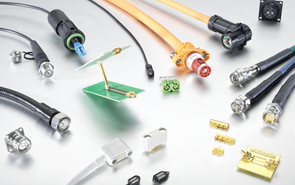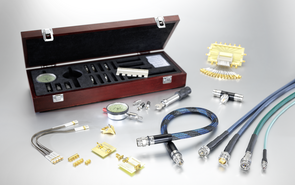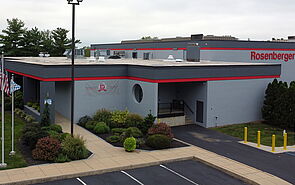The Rosenberger Group, as a development partner in the field of industrial measurement technology, designs and manufactures high-quality precision products for use in various measurement technology applications.

- Markets & Applications

High-tech companies rely on the precision and reliability of Rosenberger’s high quality products. The Rosenberger group invests strategically in the development of new high-quality products, in the most advanced manufacturing and business processes, in resource conservation and environmental protection.
- Markets & Applications
- Test & Measurement
- Military & Aerospace
- Telecommunications
- Industry

Rosenberger is an experienced connection solutions partner to customers in the Industrial sectors. With a global presence, the company provides a comprehensive portfolio of innovative, high quality connection products backed by extensive professional services.
- Medical

Rosenberger’s proven solutions competence ensures the delivery of reliable, innovative, high precision connectors for use in medical hardware and software components.
- Automotive

Rosenberger products stand for precision, durability and quality at the highest level. The company has considerable expertise in the automotive sector from two decades of designing and producing both customized solutions and standard products.
- Precision Machining
- Products

As a renowned manufacturer, the name Rosenberger is associated with the most advanced technology, quality and creativity. The Rosenberger Group provides a wide range of standardized and customized connectivity solutions in high-frequency and fiber optic technologies.
- Products
- Connectors & Adaptors
Rosenberger designs and manufactures connectors that are engineered to reliably transmit data and power in numerous types of applications with various requirements.
- Microwave Test Cables
- RF Cable Assemblies
Regardless of whether standard or custom assembly, Rosenberger develops and manufactures fit-for-purpose cable assemblies for signal-, data- and power transmission.
- Test Equipment

To fulfill the highest demands of R&D, test labs, or quality assurance departments, Rosenberger offers a comprehensive range of high-precision RF test & measurement products.
- Tools & Accessories
- Customized Solutions
- Company

Rosenberger North America - with its manufacturing locations in Akron, PA and Pennsauken, NJ and various sales offices all over the USA - represents the Rosenberger Group in North America.
- Company
- About Us
- Rosenberger Worldwide
- Rosenberger History
- Certifications
- Mission Statement
- Code of Conduct
- Quality & Environment
- Career
- News & Events

Latest News & Events by Rosenberger North America
- News & Events
- News
- Events
- Career Events
- Contact

We're looking forward to your request!
- Contact
- Contact Form
- Management
- Sales & Marketing
- Quality Assurance
- Authorized Distributors
- Join Our Mailing List
- Product Catalog
